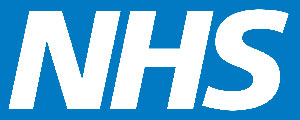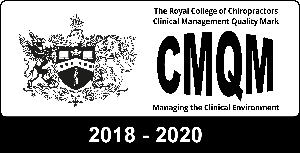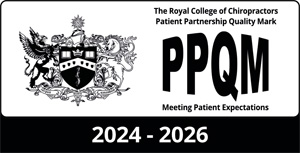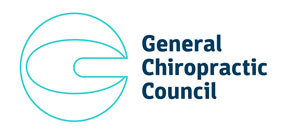Stress is one of today’s “buzz” words. Psychosocial stress pervades modern life and is known to have an impact on health (Jamison, J. 2000). The average person will comment that they have experienced “stress” at some point in their lives; but what is stress?
What is stress?
There is no agreement in the definition of stress.
Some proposed definitions are:
“A condition or feeling experienced when a person perceives the demands of the environment to be greater than their perception of their ability to cope”
“A psychological and physiological response to events that upset our personal balance in some way”
“A reaction to any internal or external stimuli that upsets normal functioning and disturbs mental or physical health”
In response to intense stimuli from an external threat the body’s defences kick-in to produce the ‘fight-or-flight’ response (heart rate increases, muscles tense up, breath quickens). The body releases a rush of stress hormones (adrenaline, norepinephrine and cortisol) in response to a sense of danger and to prepare the body for an emergency response.
Stress has generally been synonymous with distress and seen as something negative. However, it can be seen as something positive in creating self motivation.
The sources (stressors) and consequences (strain) of stress are very individual. Stress is usually caused by a repetitive and prolonged build up of certain triggers.
Categories of Stress
|
| ||
|---|---|---|---|
|
| ||
|
| ||
|
|
The symptoms of perceived stress are what health care practitioners, psychiatrists, counsellors, social workers and complementary therapists help deal with. These include a number of responses and will vary in occurrence and intensity for everyone.
- periods of irritability or anger
- apathy or depression
- constant anxiety
- irrational behaviour
- memory problems
- indecisiveness
- agitation
- restlessness
- loss of appetite
- comfort eating
- lack of concentration
- loss of sex drive
- increased smoking, drinking, or taking recreational drugs
- nervous habits (e.g. nail biting, pacing)
- overdoing activities (e.g. exercising, shopping)
There can also be physical effects, which may include the following:
- excessive tiredness
- skin problems, such as eczema
- aches and pains resulting from tense muscles
- neck ache, backache and tension headaches
- increased pain from arthritis and other conditions
- heart palpitations
- feeling sick (nausea)
- stomach problems (e.g. cramps)
- missed menstrual cycle
(the above information was extracted from BUPA health leaflet)
The main area of concern for Chiropractors is the relationship between pain and stress.
Many patients comment that they feel stressed. This often leads to the questions:
Is the stress in my life causing the pain?
Or
Has my physical low back pain led me to feel “stressed out”?
These are valid questions and the answer can be either or both. There are conflicting opinions about which comes first, the psychological component causing a physical problem or a physiological illness causing emotional stress. Some even argue that ‘stress’ isn’t real at all. The precise role of stress in causing illness is not known.
It is important to remember the body’s connective systems when thinking about stress. When stressed, the nervous system becomes irritated which can directly impact the muscular system causing tension and tightness. When muscles are tense, the joints of our spine do not move as well as they should and we go into tense postures. The weaker areas of the spine may be further fatigued and inflamed which can cause more nerve irritation.
Chiropractic manipulation enables the body to function at its best as it removes any nerve interference that may be causing tension or stiffness to give a feeling of release and relaxation.
Finding a personalised relaxation technique that improves your ability to cope with the stressor is one of the most important things in helping to reduce stress levels.
Handy Hints
Nurture yourself.
Give yourself separate time in the day for relaxation, spend time with people that make you happy, do something you really enjoy, increase the humour around you and laugh.Simple things can sometimes make a difference.
- Sweat it out in the gym
- Go for a walk
- Write in a journal
- Read a good book
- Watch a comedy
- Listen to music
- Talk to a supportive friend
- Potter in the garden
Relaxation techniques (10-20 min a day) evoke the relaxation response, a state of deep rest. The heart rate decreases, breathing is deeper and slower, muscles relax, blood pressure drops or stabilises. It can help increase your energy and mental focus.
A deep breathing technique using the diaphragm and abdomen correctly allows the body to inhale more oxygen and encourages full oxygen exchange throughout the chest and lungs. This type of breathing makes your brain create longer, slower brain waves which allow the body to feel more relaxed and calm.
Meditation
Is shown to have a positive effect on immune function. Meditation is extremely effective in that it slows the breathing rate, increases oxygen consumption, creates a relaxed brain wave rhythm and increases blood flow.
Biofeedback
Is a relaxation therapy that will show you how to regulate your body’s functions as well as to reduce physical and psychological stress.
Guided imagery
A relaxation therapy that promotes tranquillity. Just close your eyes, take a few deep, easy breaths and recall a time and place when you felt relaxed and peaceful. Maintaining this relaxed state is said to help promote inner healing.
Yoga
A physical discipline which teaches a series of static and moving poses and a technique to control and improve breathing.Has long been effective to reduce stress and anxiety, lowering blood pressure and heart rate, alleviating pain, providing relief from addictions and improving memory, intelligence and motor skills.











